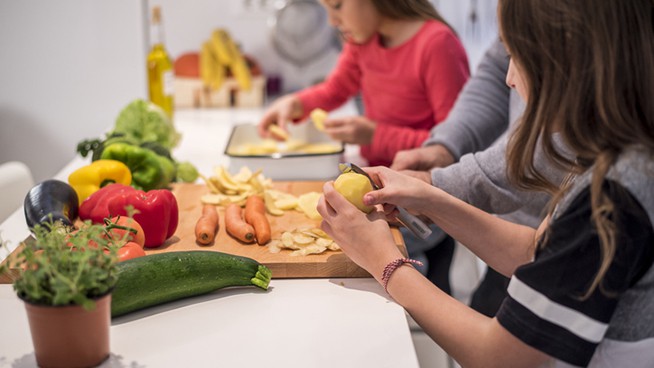The Best Healthy Sweeteners
As a registered dietitian, I get the following questions over and over again: What’s the deal with artificial sweeteners? And what are the best healthy sweeteners?
If you’re trying to maintain a healthy weight, low- or no-calorie artificial sweeteners can sound appealing. But these synthetic substances—containing chemical ingredients like aspartame, neotane and saccharin—can actually increase cravings for sugar and encourage overeating since they take away the fear of eating real sugar. They’ve also been linked to migraines and mood changes.
It’s much better to enjoy the correct portion of a satisfying natural sweetener, rather than over-consuming chemicals that can be harmful in large doses.
So let’s look at some natural, healthy sweeteners—ones that do not spike your blood sugar (like refined white sugar does) or otherwise harm your health.
Agave nectar
This is a great sweetener for beverages or plain yogurt. It is less viscous than honey or syrup and much sweeter than regular sugar, allowing you to use less.
Date sugar
I’m sure you’ve heard that dates are “nature’s candy,” making them an all-natural, pure form of energy and sweetness. Date sugar is just ground up dates, so it retains some fiber, which helps slow digestion. You also get the added bonus of vitamins and minerals such as calcium, iron, phosphorus, sodium, potassium, magnesium and zinc.
Maple syrup
Maple syrup is an excellent source of manganese and a good source of zinc, which together benefit your heart and immune system. It also has a unique, strong flavor. A little goes a long way. Make sure it’s real maple syrup, though; the artificial kind contains high-fructose corn syrup, which can really do a number on your blood sugar.
Fruit purees
Bake with ripe fruits to get added vitamins and minerals. Some of my favorites to bake with are bananas, apple sauce, raisins and dried apricots.
Coconut sugar
According to the American Diabetes Association, coconut sugar has a low glycemic index (a measure of how a food raises blood sugar) and is a good substitute for white sugar in baking, thanks to its extremely high burn temperature.
One more thing to remember: Portion control still comes into play no matter what sweetener you choose. All of the above sweeteners contain some kind of sugar—and it’s important to balance your sugar intake with healthy fats and protein throughout the day.
Read more:
RECOMMENDED FOR YOU
MOST POPULAR
The Best Healthy Sweeteners
As a registered dietitian, I get the following questions over and over again: What’s the deal with artificial sweeteners? And what are the best healthy sweeteners?
If you’re trying to maintain a healthy weight, low- or no-calorie artificial sweeteners can sound appealing. But these synthetic substances—containing chemical ingredients like aspartame, neotane and saccharin—can actually increase cravings for sugar and encourage overeating since they take away the fear of eating real sugar. They’ve also been linked to migraines and mood changes.
It’s much better to enjoy the correct portion of a satisfying natural sweetener, rather than over-consuming chemicals that can be harmful in large doses.
So let’s look at some natural, healthy sweeteners—ones that do not spike your blood sugar (like refined white sugar does) or otherwise harm your health.
Agave nectar
This is a great sweetener for beverages or plain yogurt. It is less viscous than honey or syrup and much sweeter than regular sugar, allowing you to use less.
Date sugar
I’m sure you’ve heard that dates are “nature’s candy,” making them an all-natural, pure form of energy and sweetness. Date sugar is just ground up dates, so it retains some fiber, which helps slow digestion. You also get the added bonus of vitamins and minerals such as calcium, iron, phosphorus, sodium, potassium, magnesium and zinc.
Maple syrup
Maple syrup is an excellent source of manganese and a good source of zinc, which together benefit your heart and immune system. It also has a unique, strong flavor. A little goes a long way. Make sure it’s real maple syrup, though; the artificial kind contains high-fructose corn syrup, which can really do a number on your blood sugar.
Fruit purees
Bake with ripe fruits to get added vitamins and minerals. Some of my favorites to bake with are bananas, apple sauce, raisins and dried apricots.
Coconut sugar
According to the American Diabetes Association, coconut sugar has a low glycemic index (a measure of how a food raises blood sugar) and is a good substitute for white sugar in baking, thanks to its extremely high burn temperature.
One more thing to remember: Portion control still comes into play no matter what sweetener you choose. All of the above sweeteners contain some kind of sugar—and it’s important to balance your sugar intake with healthy fats and protein throughout the day.
Read more:
[cf]skyword_tracking_tag[/cf]











